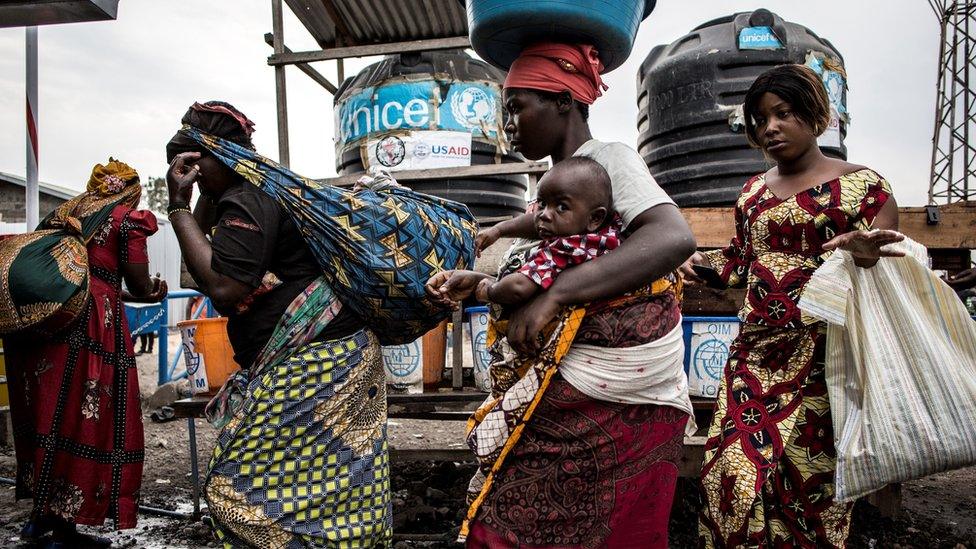Ebola in DR Congo: Case confirmed in Goma
- Published
Treating Ebola in the DR Congo warzone
The Democratic Republic of Congo has confirmed the first case of Ebola in the eastern city of Goma, a major transport hub.
The World Health Organization (WHO) said the case could be a "game-changer" given the city's population of more than two million.
But the WHO expressed confidence in plans to deal with the diagnosis.
DR Congo's health ministry said a pastor tested positive after arriving in the city by bus on Sunday.
More than 1,600 people have died since the Ebola outbreak began in eastern DR Congo a year ago - the second biggest outbreak ever.
The WHO director-general, Tedros Adhanom Ghebreyesus, said an emergency meeting is being convened.
"We are confident in the measures we have put in place and hope that we will see no further transmission of Ebola in Goma. Nevertheless, we cannot be too careful," he said.
The health ministry said in a statement that there was a low risk of the disease spreading. It said everyone else on the bus - a driver and 18 other passengers - had been tracked down and they would be vaccinated on Monday.
"Because of the speed with which the patient has been identified and isolated, as well as the identification of all passengers from Butembo [where the bus came from], the risk of spreading to the rest of the city of Goma remains low," the statement said.
Some 3,000 health workers in the city have already been vaccinated.
The pastor travelled 200 km (125 miles) to Goma by bus from Butembo, where he had been with people with Ebola.
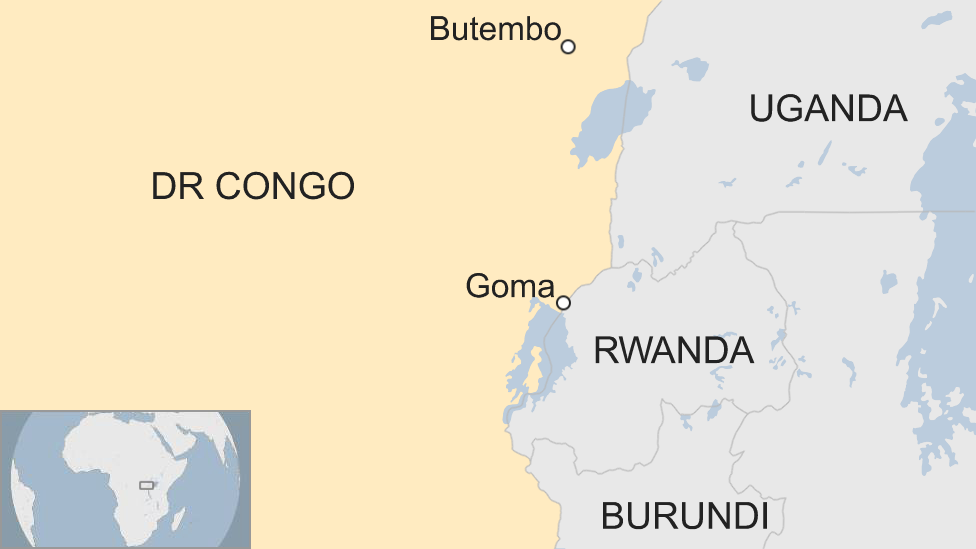
Goma is a major commercial and cultural hub on DR Congo's border with Rwanda, with transport links to the wider region.
Rwanda said it was on high alert to deal with Ebola.
Its health minister, Diane Gashumba, rushed to the Rwandan city of Gisenyi after the Goma case was confirmed.
She urged people to "think twice before crossing to where there is a disease".
People walk freely between Gisenyi and Goma, heightening concerns in Rwanda that Ebola could spread to Rwanda.
Widespread mistrust
Fear of the deadly Ebola virus - which sees patients suffer gruesome symptoms and rules out customary burial rites - is a big challenge for health workers in DR Congo battling to contain the spread.
"People are still afraid to come to health clinics if they are experiencing Ebola symptoms," said the International Rescue Committee's Ebola emergency response director, Tariq Riebl.
Decades of conflict in eastern DR Congo have led to widespread mistrust of the authorities and this also has an impact on the disease spreading, according to authors of a recent report.
Some simple techniques can help prevent spread of Ebola
The current outbreak in eastern DR Congo began in 2018 and is the 10th to hit the country since 1976, when the virus was first discovered.
It is dwarfed by the West African epidemic of 2014-16, which affected 28,616 people mainly in Guinea, Liberia and Sierra Leone. About 11,310 people died in what was the largest outbreak of the virus ever recorded.
Ebola infects humans through close contact with infected animals, including chimpanzees, fruit bats and forest antelope.
It can then spread rapidly, through contact with even small amounts of bodily fluid of those infected - or indirectly through contact with contaminated environments.
Since the beginning of the current Ebola outbreak in eastern DR Congo, the WHO has on three occasions opted not to declare it a global health emergency.
But the UK last week called on the global health body to formally call it an emergency - a technical definition - that would make it easier to raise money internationally.

What is Ebola?

Ebola is a virus that initially causes sudden fever, intense weakness, muscle pain and a sore throat
It progresses to vomiting, diarrhoea and both internal and external bleeding
People are infected when they have direct contact through broken skin, or the mouth and nose, with the blood, vomit, faeces or bodily fluids of someone with Ebola
Patients tend to die from dehydration and multiple organ failure.

- Published14 May 2018
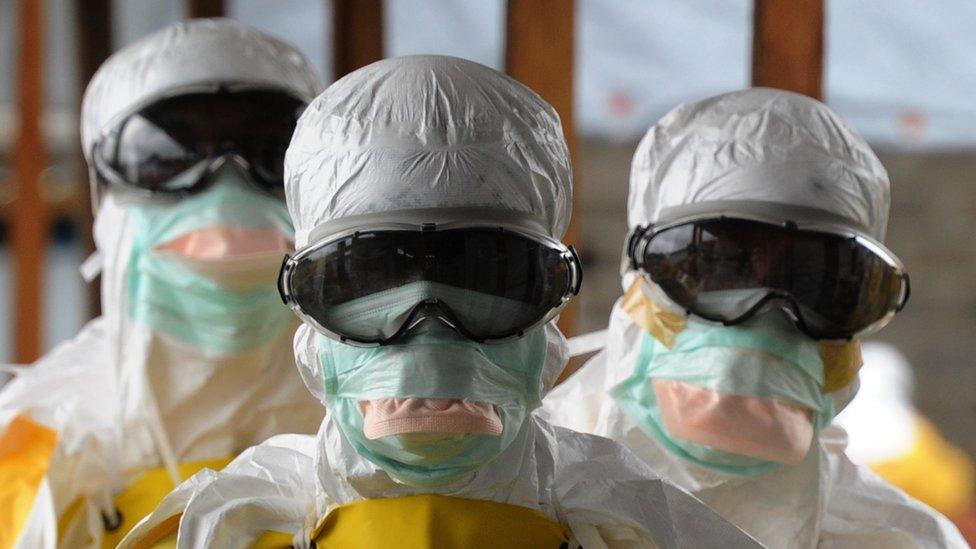
- Published29 June 2019
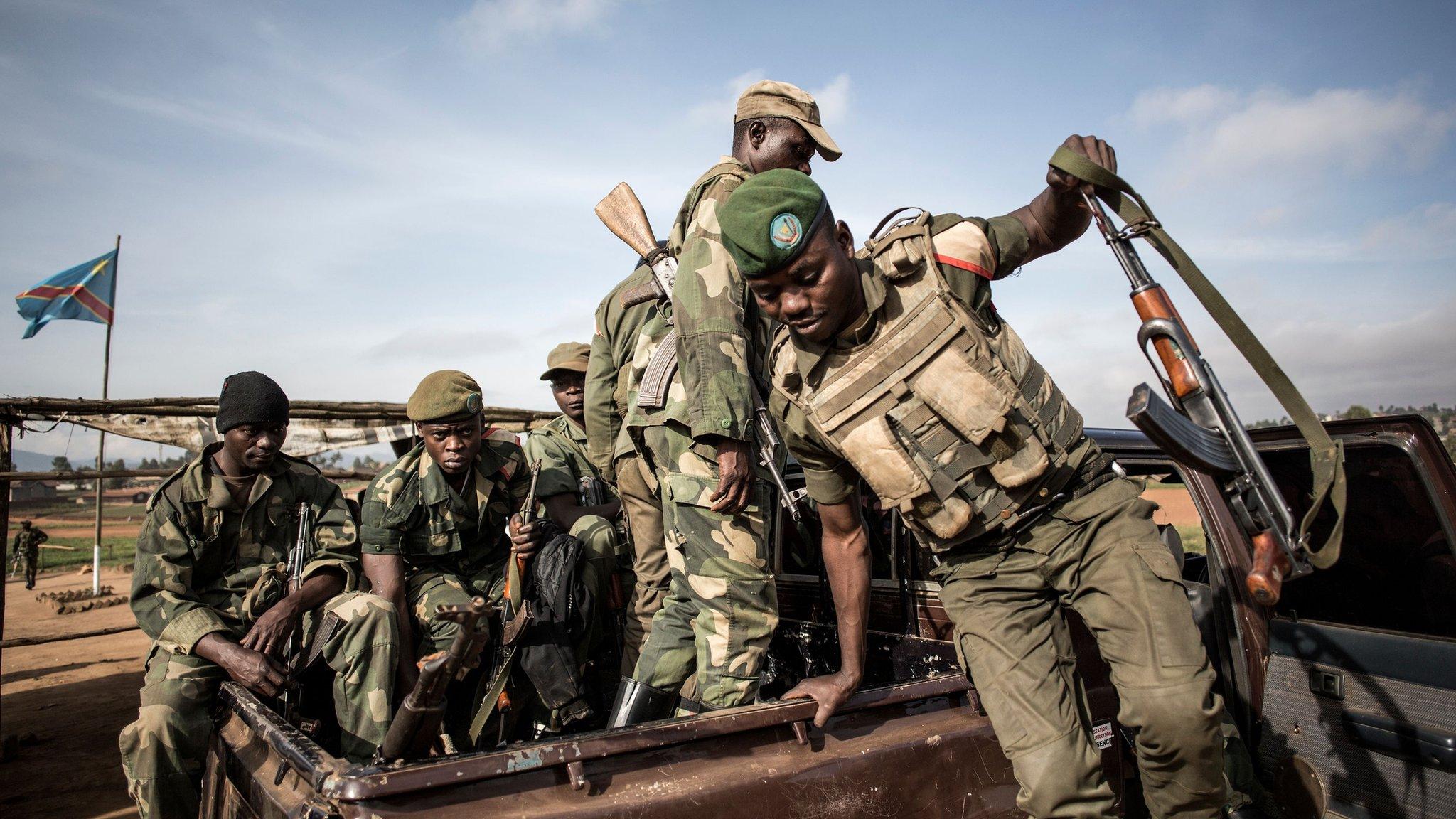
- Published7 March 2019
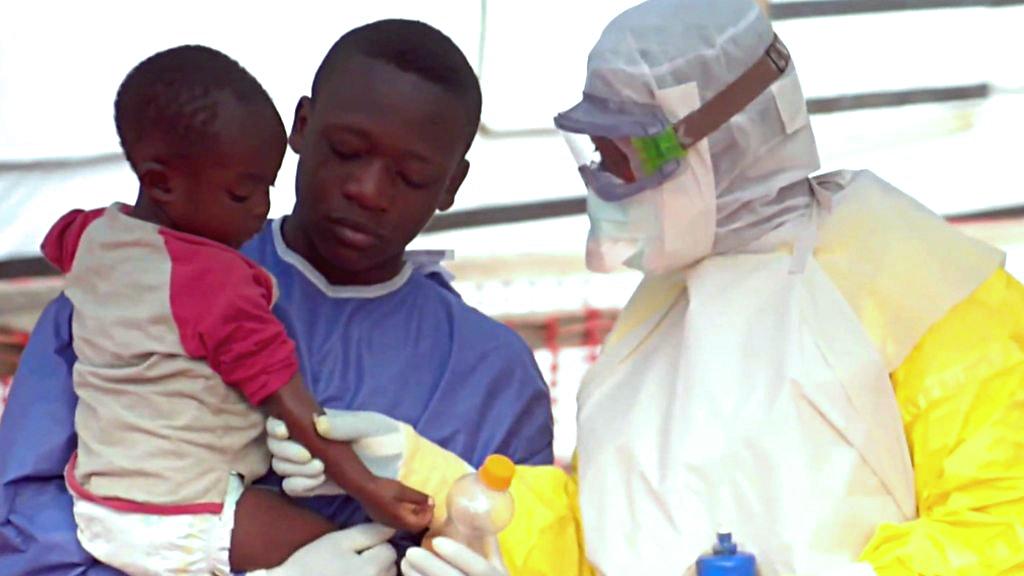
- Published30 November 2018
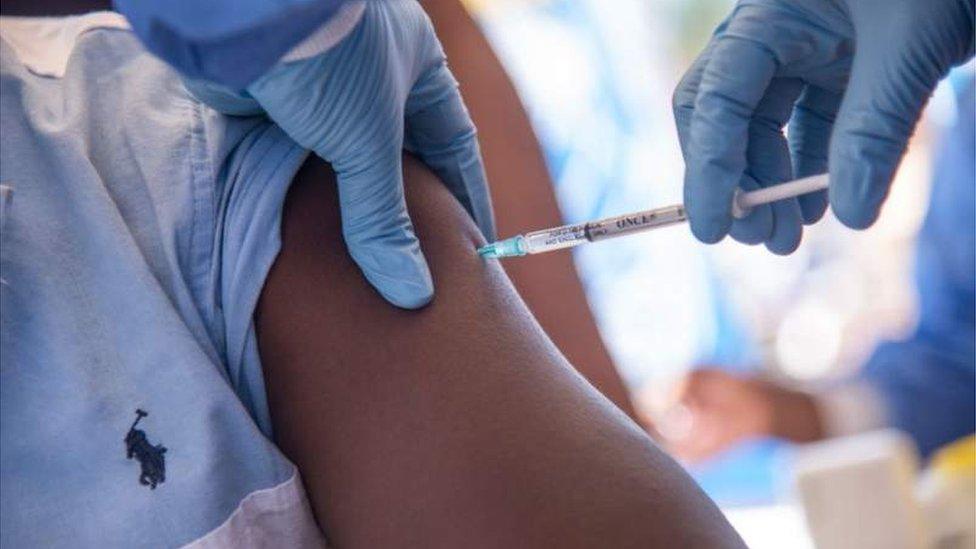
- Published16 April 2019
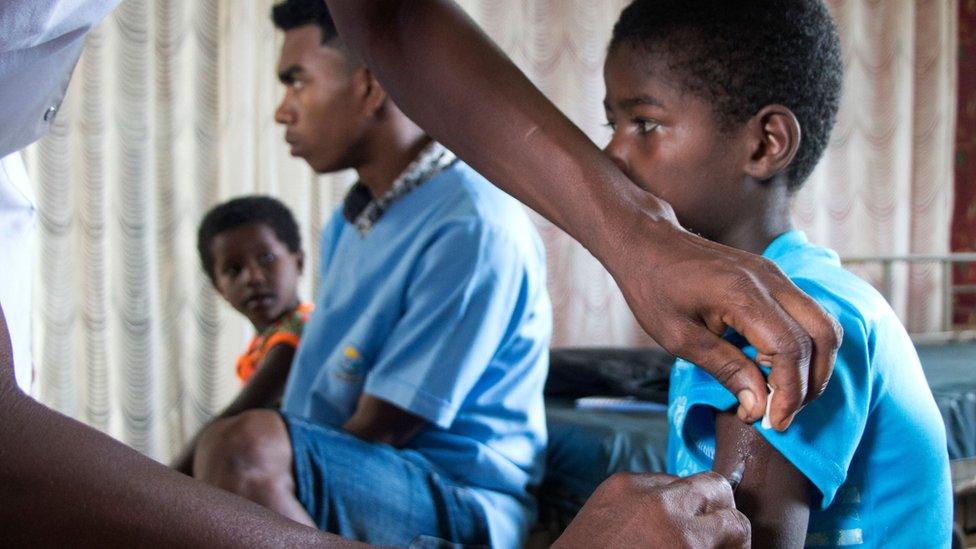
- Published5 April 2019

- Published7 June 2019
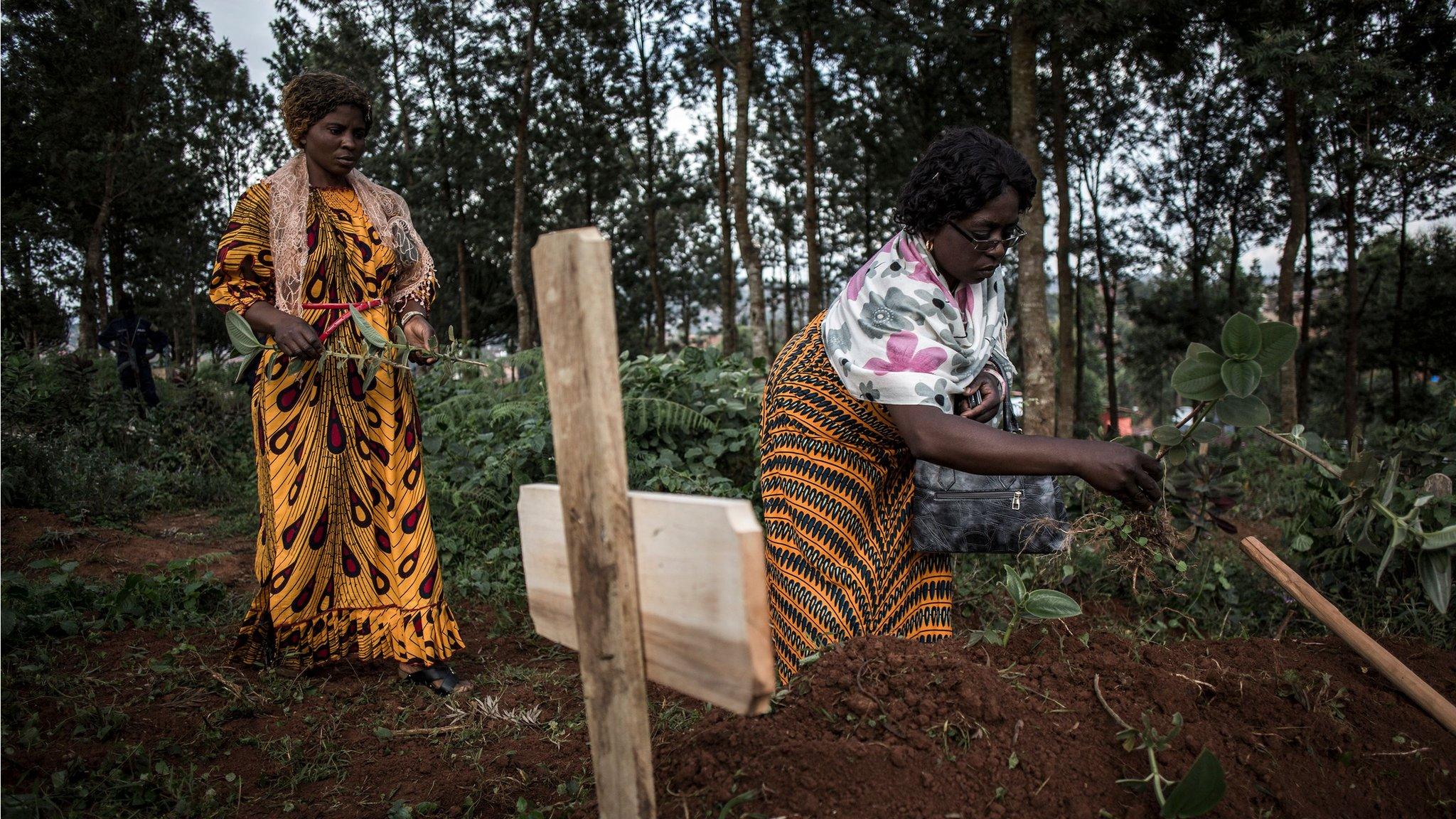
- Published2 August 2019
